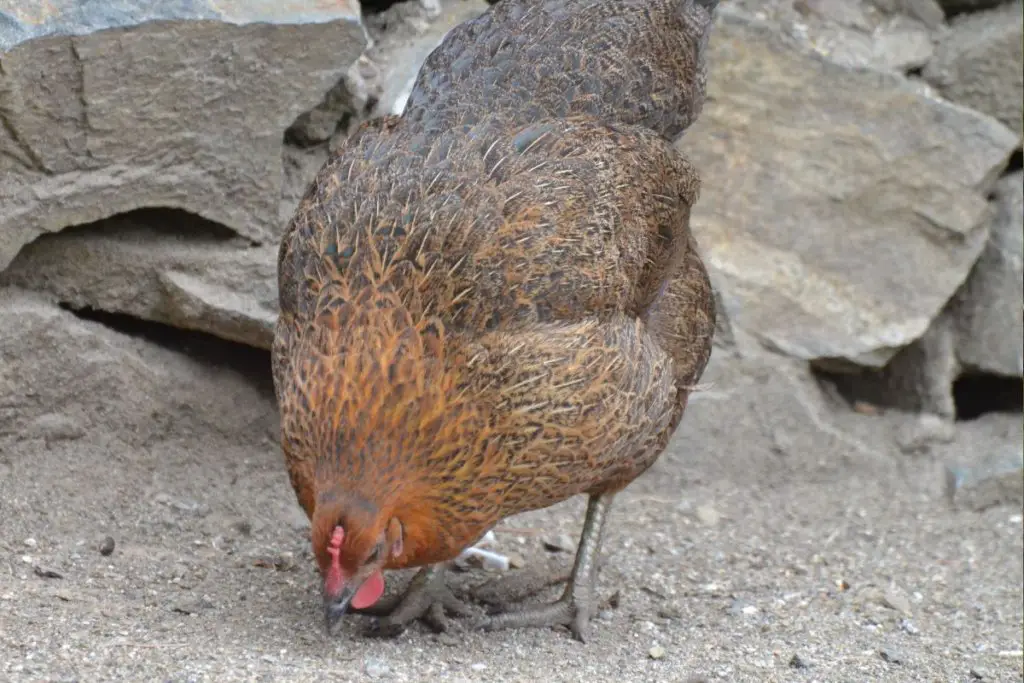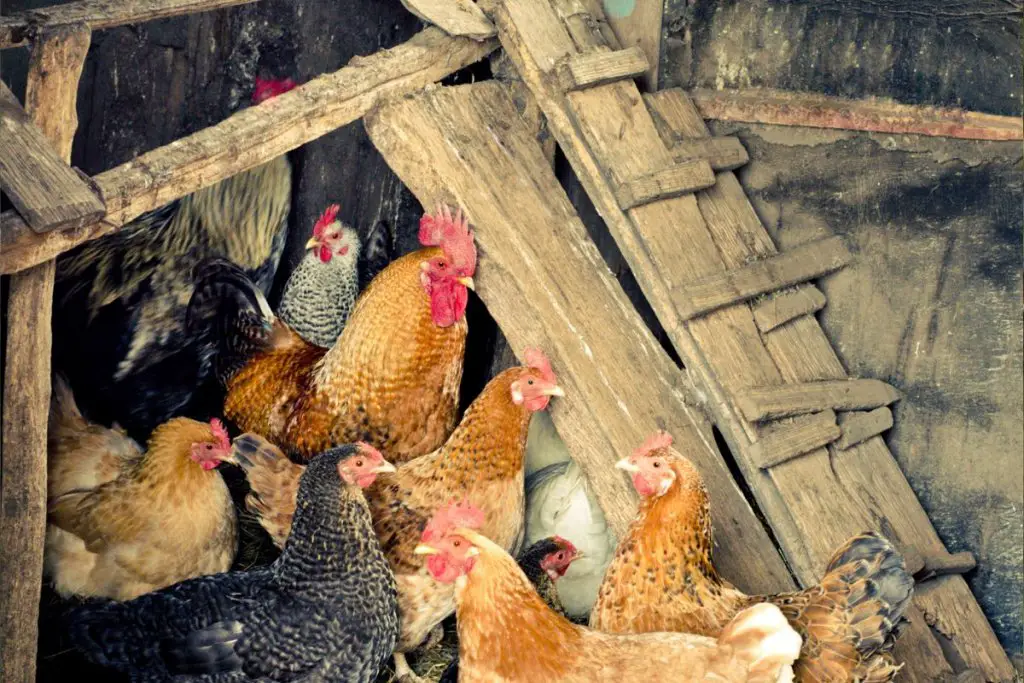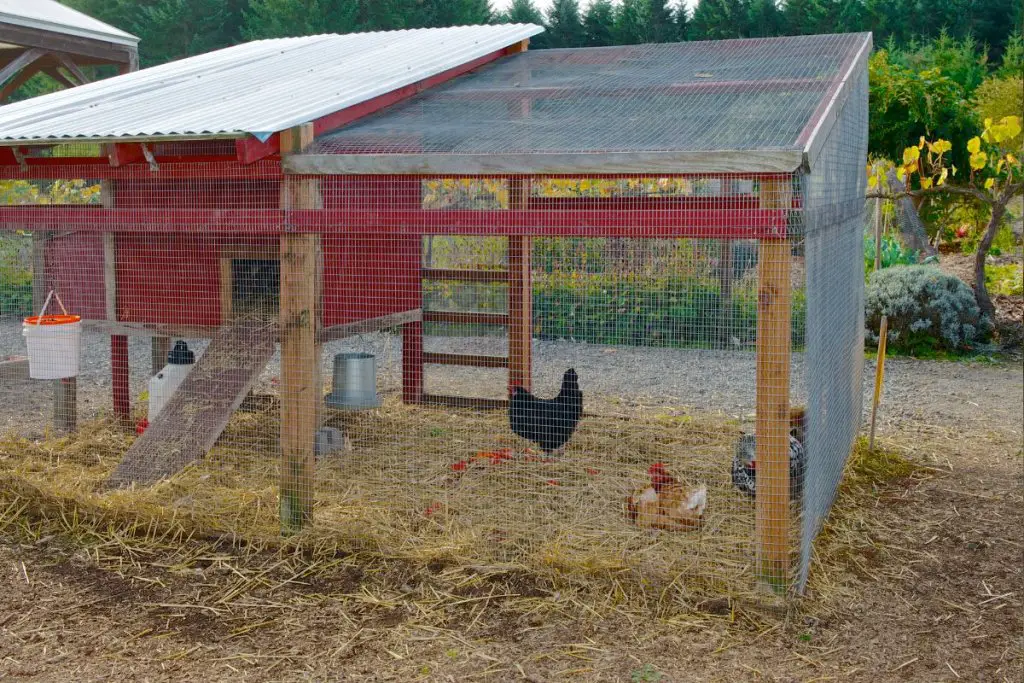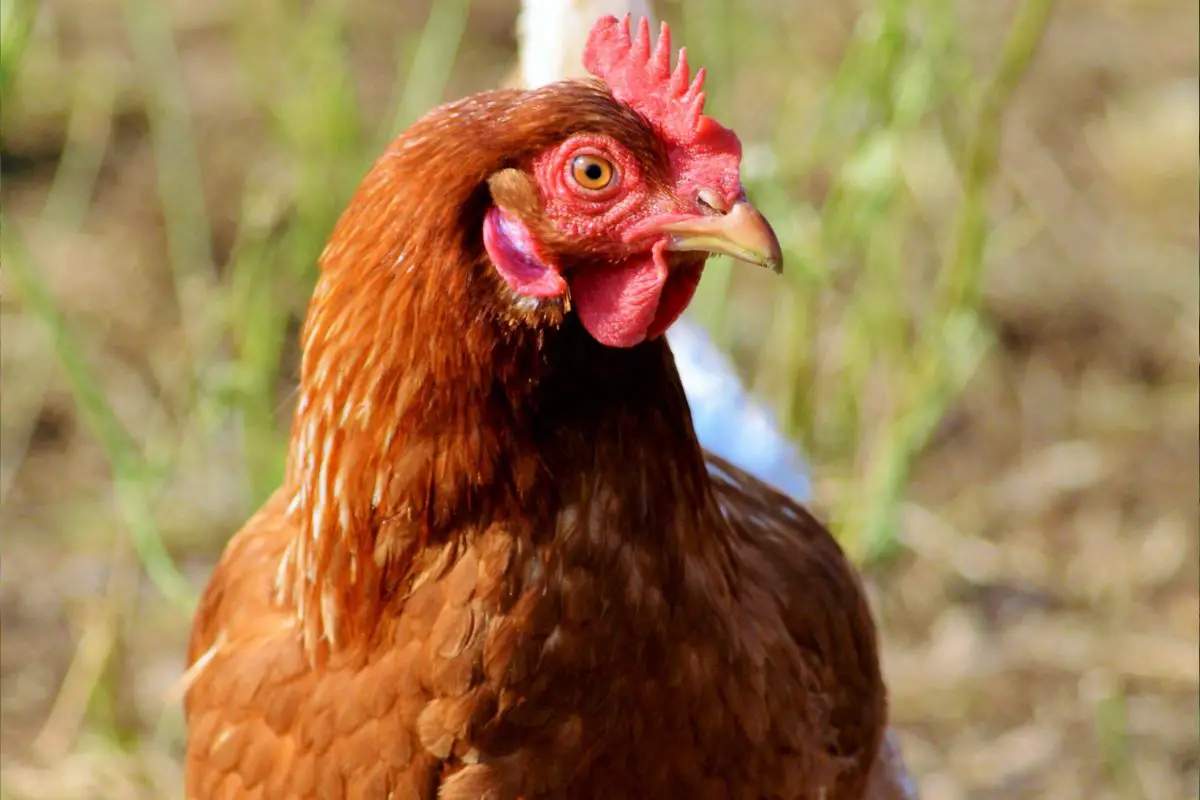Your chicken is sneezing due to a dry and dusty environment that may have poor ventilation. If ignored, this can lead to catching a common respiratory disease.
Just like us humans, chickens can sneeze and get sick. Although sneezing in chickens is not necessarily a major cause for concern for chicken keepers, it is important to ensure your backyard chickens are healthy at all times.
In this article, you’ll learn how to identify, treat, and prevent chicken sneezing. So keep reading!
Table of Contents
How to Recognize Chicken Sneezing
Chicken sneezing is easy to identify because they make a piercing sound. You need to examine your backyard chickens regularly to ensure everything is okay with them.
If you spot even a single sneezing chicken, take immediate action and find out the reason. Although the cause may be a dusty environment, it may also be an infection that could put your entire flock at risk.
Why Chickens Sneeze
Chickens sneeze for the same exact reason us humans do. It’s because there’s something in their mouth, nose, or lungs that’s bothering the nasal linings.
Chicken sneezing is simply a reflex action to get rid of anything that is irritating their nose. Sneezing can either be problematic or non-problematic.
Some common causes include:
A Dusty Environment or Dirty Coop
A dirty or dusty chicken coop can cause respiratory problems in your flock. Excess dust, feces, and ammonia can accumulate quickly in a dirty chicken coop.

Chickens are vulnerable to breathing problems, so when dust, ammonia, or dung particles build up in the air, they will start sneezing and coughing.
First, make sure your chicken coop or living environment is clean and comfortable.
Poor Coop Ventilation
Your chicken coop should have proper ventilation and still be tight enough to protect your chickens from predators and weather elements. While this can be confusing, a good coop should not have any gaps where rain and wind can penetrate through.
However, your coop must still have some vents near the ceiling and where the birds perch to allow warm and moist air to escape. Any wind that blows through those openings won’t affect your birds much.

Proper ventilation is important because its helps keep your coop cool during the summer. In winter, it allows moist air to escape. Remember that moist air can support bacteria growth in your coop, leading to other respiratory problems.
Common Respiratory Diseases in Chickens
There are several respiratory diseases that can make chickens sneeze or wheeze.
1. Common Cold
Chickens can develop a version of the common cold, which is characterized by sneezing.
If your chicken is coughing, sneezing and not drinking or eating well, it may have common cold.
2. Bird Flu
Bird flu is a life-threatening disease whose symptoms can include sneezing. Other symptoms include reduced egg laying, runny nose, swollen wattles and combs, lethargy, lack of appetite, diarrhea, and abnormal behavior.
If you spot any of the above symptoms, consult your vet immediately. Since it can also affect people, watch out for any symptoms and get immediate treatment if necessary.
3. Infectious Coryza
Infectious coryza is a serious disease in chickens that is caused by bacteria. Its symptoms include coughing, sneezing, and breathing difficulties. Others are conjunctivitis, facial swelling, and loss of appetite.
While it’s not fatal, it is infectious just as the name suggests. It’s important to isolate any birds with these signs as soon as possible.
4. Mycoplasma gallisepticum
Also referred to as mycoplasmosis or bulgy eye, Mycoplasma gallisepticum is a chronic respiratory disease that is caused by a bacterium.
This bacterium is common in backyard flocks and spreads quickly. Common symptoms are coughing, sneezing, nasal discharge, head shaking, and facial swelling.
You should separate any infected birds from the rest of the flock and treat them with vet-approved antibiotics as soon as possible.
5. Cryptosporidiosis
This protozoal infection occurs due to contaminated feeders or poor cleaning practices. Although some types of cryptosporidiosis do not cause any respiratory symptoms, those that do lead to symptoms such as coughing, sneezing, swollen sinuses, difficulty breathing, and lack of appetite.
Your vet can recommend suitable antibiotics for any infected birds.
6. Colibacillosis
This E. coli infection can damage a chicken’s respiratory tract and is characterized by coughing, sneezing, and failure to eat and drink.
The respiratory system infection can also lead to digestion problems, so a sick chicken can also experience watery diarrhea.
7. Gapeworm
Parasitic gapeworm thrives in the windpipe of chickens. It clogs the airways, causing the sick chicken to cough and sneeze continuously in a bid to remove it.
If it’s ignored, these parasites can grow larger and occupy more space of a chicken’s trachea, ultimately suffocating it.
If your chickens are coughing and sneezing, and have breathing problems, consult your vet immediately.
8. Infectious Laryngotracheitis
This highly infectious respiratory disease in chickens is caused by herpes virus. Common symptoms include coughing, sneezing, nasal discharge, trouble breathing, conjunctivitis, and watery eyes.
If left untreated, it can be fatal. However, if you spot the symptoms early on and treat your birds appropriately, they can overcome it.
9. Infectious bronchitis virus
This is yet another highly infectious chicken disease that is characterized by gasping, sneezing, nasal discharge, swollen sinuses, and tracheal rales.
Its cause is a coronavirus, so only supportive treatment is available.
10. Ornithobacteriosis
This contagious chicken disease is caused by a bacterium called Ornithobacterium rhinotracheale. Common causes include poor sanitation, overcrowding, and exposure to sick wild birds.
Symptoms include coughing, sneezing, ocular and nasal discharge, lethargy, and lack of appetite.
Sadly, treatment is difficult, so it’s recommended to separate all infected chickens from other birds while taking other preventive measures for these bacterial infections.
11. Avian influenza
This dreaded zoonotic disease is characterized by symptoms such as coughing, sneezing, lethargy, nasal discharge, diarrhea, lack of appetite, drooping feathers, ataxia, tremors, purple combs, and decreased egg production.
What you need to do is to monitor your chickens and try to determine and eliminate possible causes.
Treatment for Chicken Sneezing
Treatment for sneezing in chickens will vary depending on the cause.
If your chooks are sneezing due to dust or ammonia gas, then cleaning your coop and providing them with clean bedding can help solve the problem.

Nevertheless, most of the above respiratory infections among chickens require time and resources to treat.
For severe respiratory issues, contact your veterinarian as soon as possible. Your vet can prescribe herbal supplements or antibiotics for certain respiratory infections.
It’s also best to separate any sick birds from the rest of the flock. Respiratory diseases are typically airborne, so sneezing and coughing can easily spread the illness to other chickens.
Finally, supply your chickens with clean feed and fresh water every day.
How to Prevent Sneezing
Coop Cleanliness & Ventilation: keep your chicken coop clean and nice as dust can cause sneezing and discomfort.
Food & Water Intake: feed your chickens only high-quality food containing enough calcium, protein, vitamins and minerals for their optimal growth and development. Also, change water frequently to minimize the risk of respiratory illnesses in your chickens.
Sun Exposure: expose your chooks to the sun to help boost their immune system and egg production. Therefore, let your chickens move around in the sun every day to get a good dose of vitamin D.
Vaccination: vaccination is an easy way to avoid many respiratory illnesses such as Infectious Bronchitis, Infectious Laryngotracheitis, and Newcastle disease. Vaccinating your entire flock will save you and your birds a lot of trouble down the road.
Quarantine: if you want to add new chickens to your existing flock, make sure to quarantine them for at least two weeks to help protect other birds as you watch them for any signs of infection.
Isolation: Isolate any sneezing chicken with signs and symptoms and provide them with proper medical attention immediately. Early detection and treatment are important for keeping your entire flock safe and healthy.
Conclusion
Chicken sneezing is fairly common, particularly when their coop and feed are dusty. If you notice any of your chickens sneezing, take immediate action by first cleaning their coop. Sneezing, coughing, and nasal discharge are common signs of respiratory diseases in chickens, and a consultation with your vet is highly recommended.

